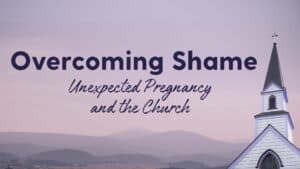One of the most influential recent books on pastoral ministry is Dangerous Calling by Paul Tripp. Published back in 2012, I have read it multiple times, and Tripp’s plea for pastoral faithfulness has impacted me in a uniquely challenging vocation.
I picked up my copy some time ago, and something caught my attention on the back. Five well-known Christian leaders endorsed the book, and three of those five have since left the ministry. I won’t mention any names, but I will say that two were disqualified from ministry, and one has renounced Christianity altogether. The sad irony is that it only bolsters Tripp’s contention that pastoral ministry is indeed a dangerous calling.
To clarify, if you have a copy of the book, it’s likely your copy isn’t endorsed by these three fallen leaders. I have the first edition, and the publisher has updated it for obvious reasons.
In his classic work, Lectures to My Students, Charles Spurgeon writes,“Do not enter the ministry if you can help it,” … If any student in this room could be content to be a newspaper editor, or a grocer, or a farmer, or a doctor, or a lawyer, or a senator, or a king, in the name of heaven and earth let him go his way” (26-27).
While perhaps Spurgeon goes too far in this assertion, few would miss the wisdom of his words. Ministry is more than one job out of a smorgasbord of job options to choose from. If the Lord has not indeed called a man, and he doesn’t feel utterly compelled to shepherd the flock of God (1 Peter 5:1-4), then it is sound advice to find another calling.
‘Will I last?’
I have been a pastor for just 15 years, but I can think of several friends and acquaintances who have left the ministry in that time. Some should not have entered ministry in the first place, but not everyone who leaves the ministry is a failure. For one of those friends, stepping aside from ministry was the last thing he wanted to do. Even though God opened the door for him to take a government job with a much higher salary, he wrestled mightily with this transition.
Ministry is hard! Perhaps you have come through a challenging season of ministry and are asking, “Will I last?” If you are asking that question, you are certainly not alone.
Pursuing personal holiness
While not the only key, one key to ministry longevity is pursuing personal holiness. There is no way around it. Holiness is foundational to the pastoral calling (1 Timothy 3:1-3) and must never be compromised or short-circuited.
Another helpful book for pastors is David Murray’s “Reset: Living a Grace Paced Life in a Burnout Culture.” It is filled with much practical wisdom, particularly when it comes to the pastor taking care of his physical and emotional health. I would heartily commend it. (Editor’s note: David Murray also wrote a short eBook book for The Focused Pastor: Why Pastors are Burnt Out, Want to Quit & What to Do About It).
When a pastor is not actively pursuing sanctification and godliness, it dramatically hinders his ability to shepherd God’s flock. When a pastor fails to keep watch over his soul, it matters little how well he cares for his physical health. Paul instructed Timothy to “Keep a close watch on yourself and on the teaching. Persist in this, for by so doing you will save both yourself and your hearers” (1 Timothy 4:16).
Later on, in that same letter, after exhorting Timothy on the dangers of the love of money, he writes, “But as for you, O man of God, flee these things. Pursue righteousness, godliness, faith, love, steadfastness, gentleness. Fight the good fight of the faith” (1 Timothy 6:11-12).
Holiness is not optional
Robert Murray McCheyne once said, “My people’s greatest need is my personal holiness.” This word is especially relevant to pastors and leaders in the 21st century. Every pastor must deal with unique challenges and pressures and the tendency to elevate something else (managing, counseling, networking, visiting, and even preaching) instead of pursuing holiness.
In recent years, we have witnessed the fall of several high-profile Christian leaders. To that, we can add many more “ordinary” leaders who have also fallen but done so under the radar. While each situation is different, I would argue that most of these leaders gave the enemy a foothold by letting their walk with the Lord slide.
God has called every pastor, first and foremost, to be a worshipper of Jesus (Psalm 32:11). That is the calling of every Christian, of course, but pastors are to “set the believers an example in speech, in conduct, in love, in faith, in purity” (1 Timothy 4:12).
Take stock of yourself
Christian leader, how much time are you spending in daily prayer? How much time do you spend in Bible and devotional reading unrelated to teaching and preaching? How actively are you pursuing the spiritual disciplines and greater intimacy with Jesus? Letting these practices slip greatly hinders our ability to shepherd and care for the flock God entrusted to us.
Indeed, pastoral ministry is a “dangerous calling.” It takes years to foster a healthy ministry lifestyle and habits, but it only takes a misstep here or there to be disqualified. The battle is raging (Ephesians 6:10-18), Satan is real (2 Corinthians 11:14), and the salvation of souls is at stake (2 Corinthians 12:15).
I know you want to go the distance in ministry. I know you don’t want to be like a shooting star that burns brightly for a time and then quickly fades. I know you still want to be shepherding 10, 15, or even 20 years from now. While many things will compromise your longevity, the failure to pursue personal holiness is at the top of the list.
The Bible says, “Strive for peace with everyone, and for the holiness without which no one will see the Lord” (Hebrews 12:14). May we, as pastors, strive for holiness and encourage our people to do the same!
Related:
6 Keys to Pastoral Longevity with Pastor Dave



















